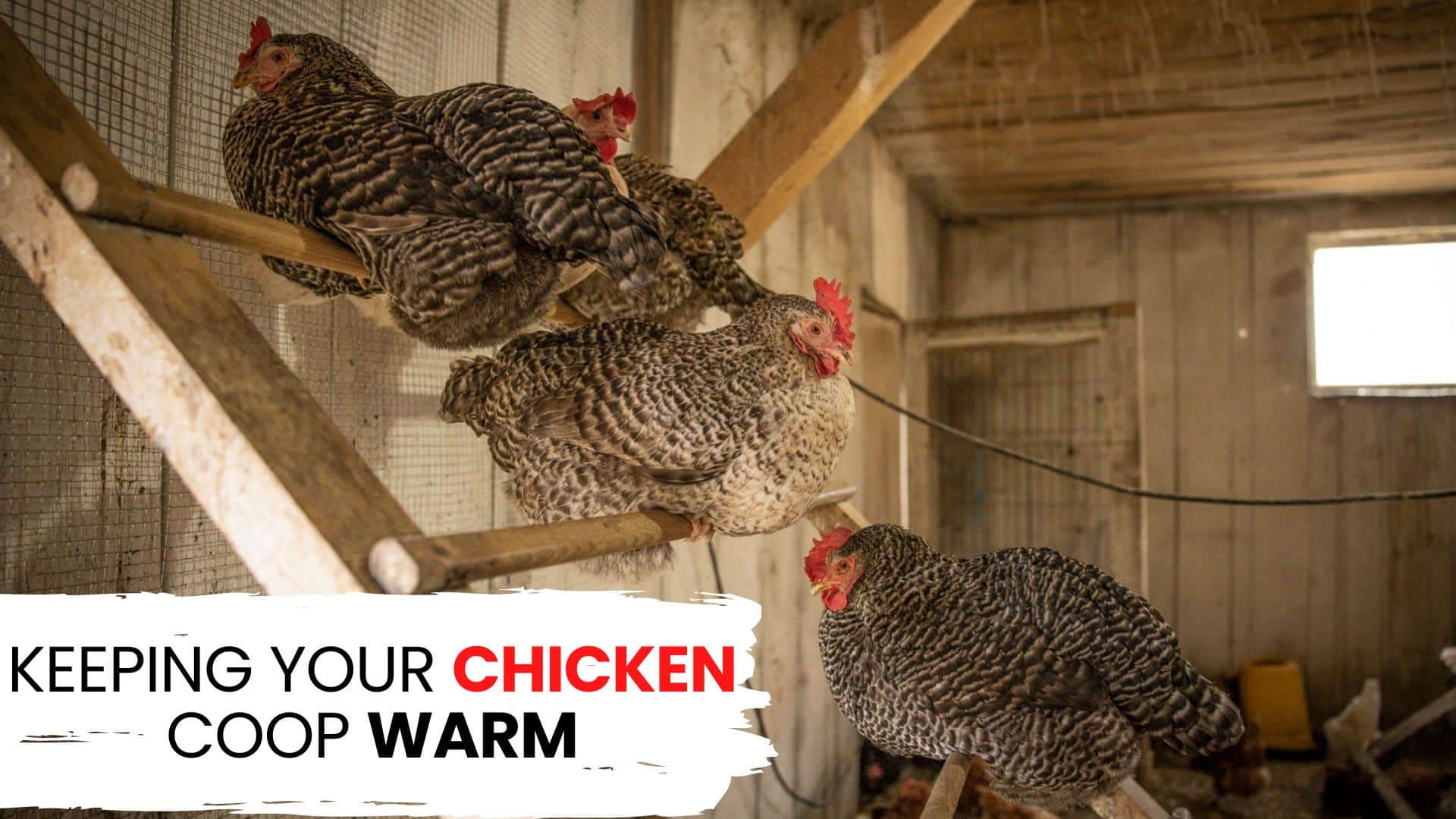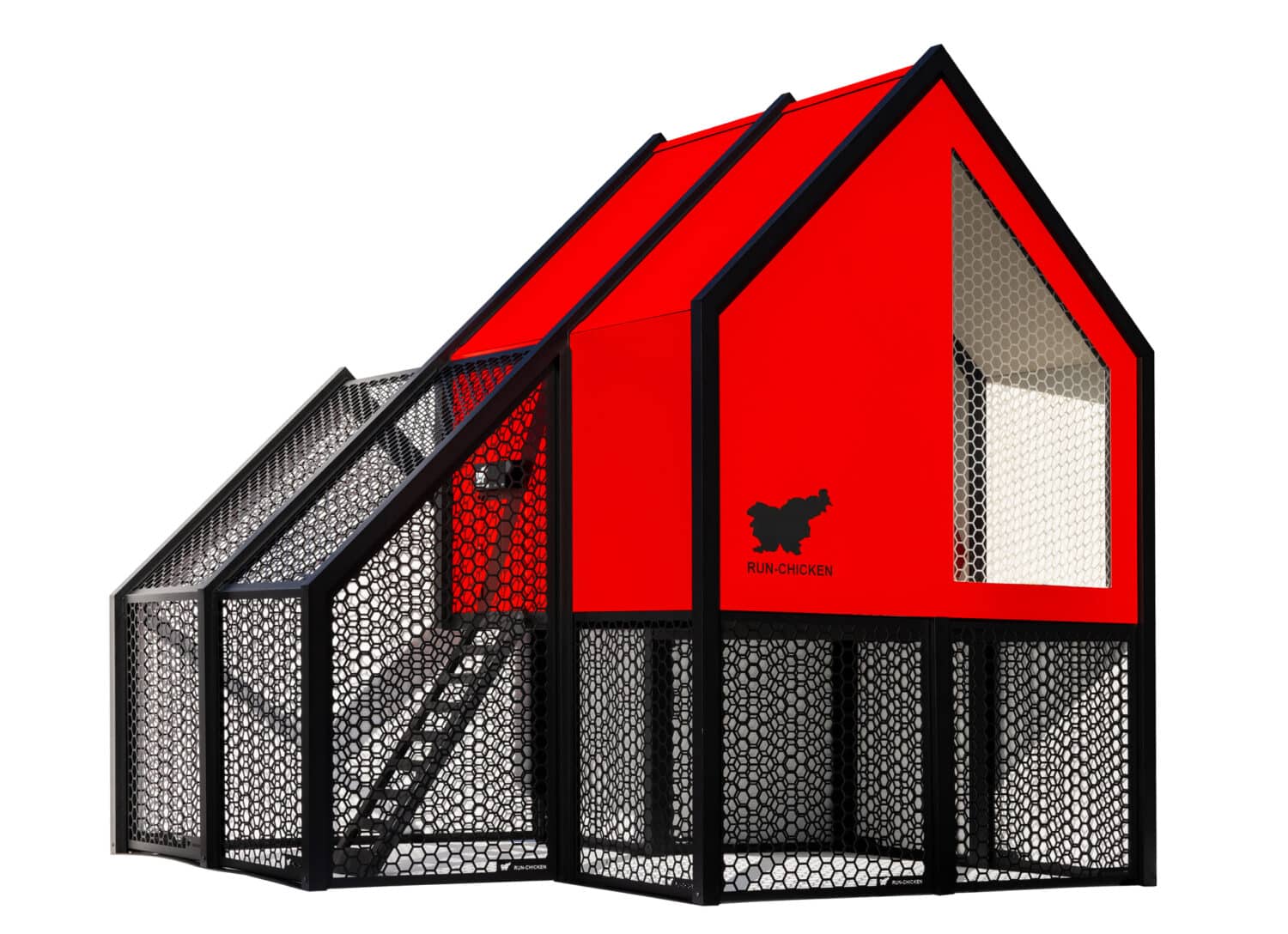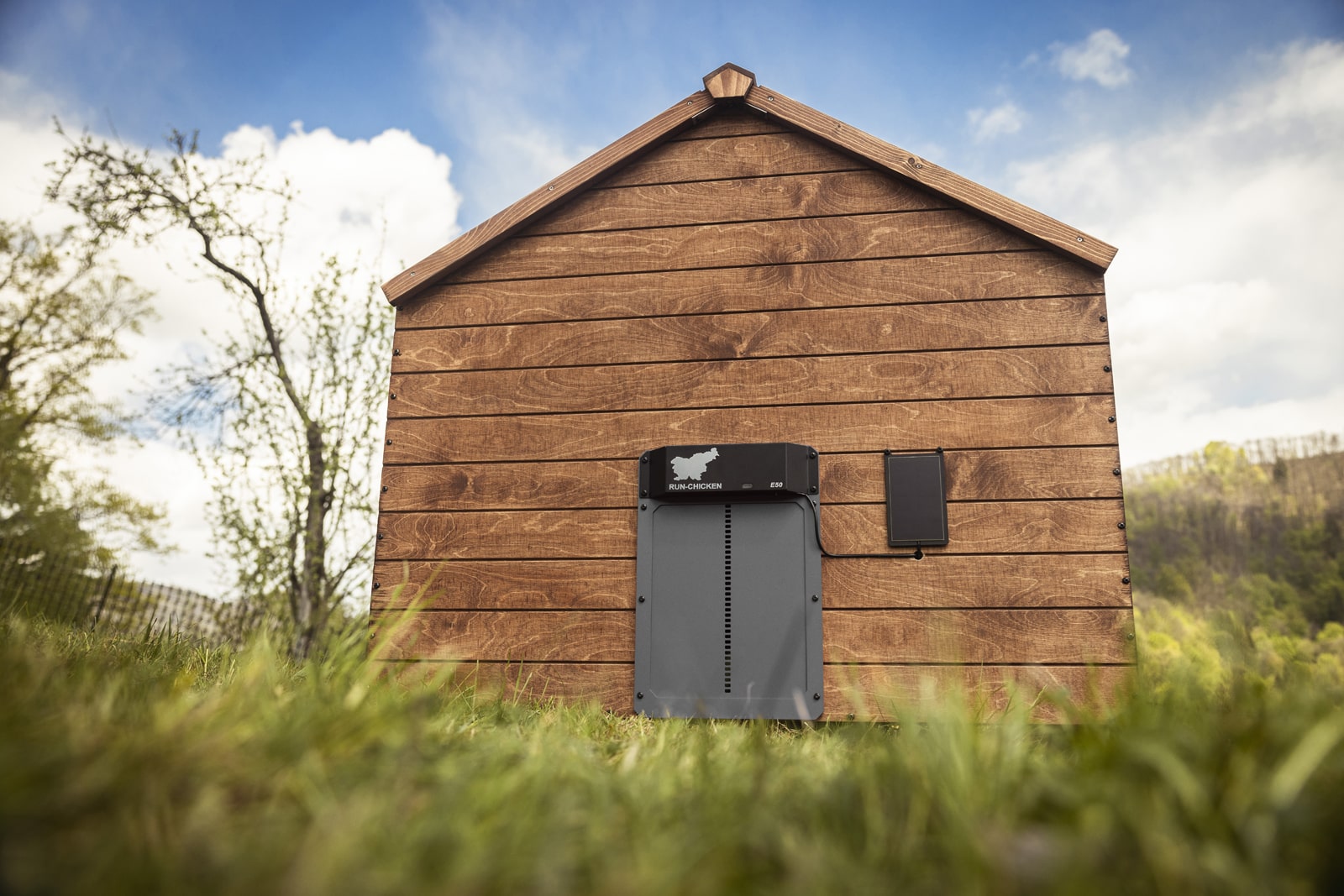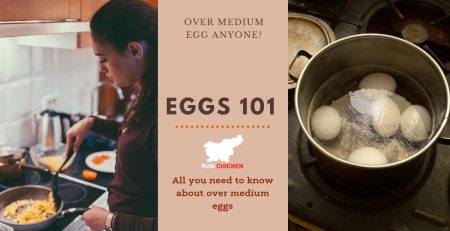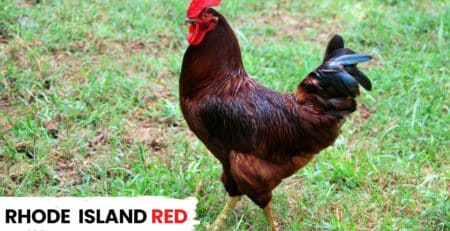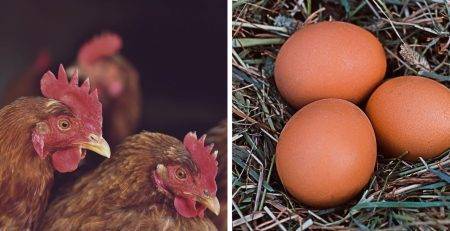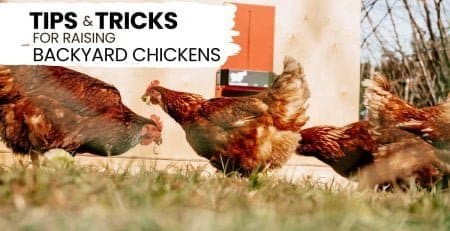There are many different breeds of chickens, and they can be raised worldwide because they are very weather-tolerant birds. Chickens have unique features that help them acclimate to many different types of climates–from hot to cold. Chickens are happiest in moderate to warm temperatures ranging from 65 to 75 degrees Fahrenheit, but these metrics can vary by breed. They can tolerate some of the most scorching hot summers as well as freezing winters as long as they are properly cared for. Although chickens are very weather tolerant, keeping your chicken coop at the ideal temperature is very important. We’re here to give you a few tips and tricks to keep your feathered friends happy and healthy.
What Is the Ideal Temperature For Chickens?
During the spring, summer, and fall, you’ll notice that your chickens love to scratch, peck, and forage outdoors. Chickens are usually happy in warmer weather because their ideal temperature is around 65 to 75 degrees Fahrenheit, but they can be very tolerant of colder weather as well. Chickens have been domesticated for around 8000 years, so you can bet that they are good at surviving and acclimating. In the winter, you may notice that your chickens prefer to stay in the coop instead of foraging around outdoors. Chickens don’t really like to walk around in the snow, sleet, ice, or other wet, cold conditions because they lose a lot of their body heat through their feet. If there is straw or bedding laid out, your chickens may venture out in the cold weather for a while.
Although chickens prefer warmer environments, they are very tolerant of the cold. The first reason for this is that a chicken’s resting body temperature ranges from 104 to 110 degrees Fahrenheit. They are hot-natured creatures and can keep themselves warm in colder weather. They also have uniquely layered feathers that they fluff up, trapping a layer of warm air between their feathers and skin. Their feathers act like a coat, keeping them warm and dry during the winter. Chickens have a high metabolism, and their hearts also beat up to 400 times per minute, which also helps to keep them warm.
Since chickens’ body temperatures are so high, they stay warm on their own when perched on their roosts at night. They also offer heat to their neighbors as they sit next to each other on their roost. As a group, the flock will keep itself nice and warm. You can think of each bird as a little heater, each one giving off the same amount of heat as a 10-watt lightbulb. If your coop is properly insulated and weatherproof, your chickens can produce enough heat on their own to keep the coop at a comfortable 40 degrees, even on the coldest mornings.
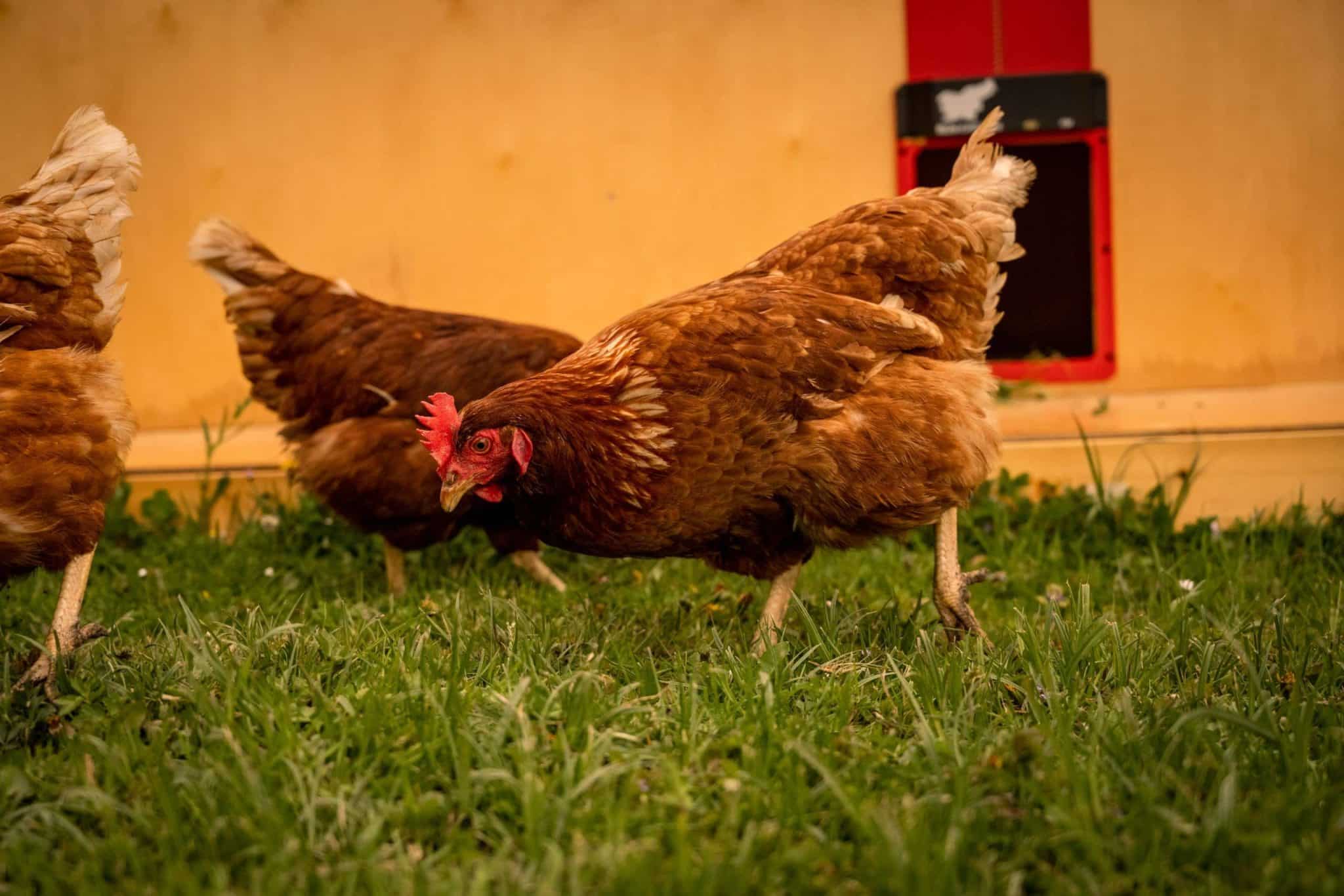
RUN-CHICKEN VILLA – Smart Chicken Coop
Original price was: $3,400.00.$1,890.00Current price is: $1,890.00.Use code MYVILLA for a Special Discount!
INCLUDED: RUN-CHICKEN Automatic Coop Door, Feeder and Nesting Box
Ergonomic Design and Convenience
The RUN-CHICKEN Villa is designed with ergonomics in mind, ensuring simplicity and optimal comfort for…Add to cartQuick Look
How Do Chickens Stay Warm in Winter?
Although chickens are masters of survival and can tolerate cold conditions, they won’t survive for long in extremely cold conditions. So, how cold is too cold? Chickens can safely survive temperatures down to the low teens, but you’ll need to be sure they have access to a coop so they can warm up. If you live in an area with below-freezing temperatures for most of the winter, you’ll need to make sure your chickens stay warm and dry. Chickens lose most of their body heat through their combs, wattles, and their feet. They know when it’s too cold outdoors to tolerate and will stay in the coop or huddle together to keep warm on colder days.
During cold, harsh winters or even short cold snaps, chickens are susceptible to frostbite on their feet, wattles, and combs. These tender areas aren’t protected by feathers like the rest of your chicken’s body, so you’ll need to take precautions to keep them warm and dry. Chickens warm themselves at night by perching on their roosts and fluffing out their feathers. Their uniquely layered feathers create a pocket of air that is warmed by the chicken’s high body temperatures.
Since a chicken’s resting temperature is anywhere from 104 to 110 degrees Fahrenheit, a flock of chickens can radiate a significant amount of heat. Some of this heat escapes, heating the coop and creating a lot of moisture. High humidity levels in your chicken coop can lead to moisture building up on the chicken’s feet, wattles, and combs, which can cause frostbite when they venture out in the cold. A drafty coop can also cause your chickens to get frostbite in the winter. Providing your chickens with proper roosting space, plenty of straw or bedding, and a draft and moisture-free coop can help prevent frostbite on the more delicate areas of your chickens’ bodies.
Tips for Keeping Your Chicken Coop Warm
When provided with a well-maintained environment and adequate shelter, hardier breeds of chickens can survive in some of the coldest climates. If you live in a colder area or just want to ensure that your chickens are warm enough in the winter, there are a few things that you can do to help them.
Insulating and Weatherproofing Your Coop
Unlike people, chickens don’t mind colder temperatures. They have a layer of downy feathers under their topcoat that provides keeps them warm and dry, even in below-freezing temperatures. But when the weather gets cold, you’ll need to make sure your coop is prepared to help keep out the cold and prevent moisture buildup, which are two things that can be fatal to your chickens in winter.
The first thing you can do to maintain an ideal chicken coop temperature is to make sure your chicken coop is water resistant and that it doesn’t have any cold drafts. A good way to do this is to install insulation, which does double duty: it helps regulate humidity levels and keeps the coop warm in the winter and cool in the summer. Another way to help keep your chicken coop nice and dry is to ensure proper ventilation. Vents should be placed high in the coop to allow the warmer, moist air to escape. Opening vents to allow airflow in the winter may seem counter-productive, but by allowing the hotter, more moist air to escape, your chicken coop will remain drier with less humidity in the air. Airflow is also important in the warmer months because it allows excess heat and humidity to escape, improving the air quality in the chicken coop.
Provide Extra Bedding
Another way to help keep your chicken coop at an ideal temperature, whether it’s the dead of winter or the middle of summer, is to provide your chickens with proper bedding. Add extra bedding, such as straw, hay, or pine shavings to your coop, run, and nesting boxes to help your chickens stay warm in the winter. When their feet get too cold, they’ll need something soft and dry to warm them back up. Chickens won’t venture out much in the snow or ice, but if you provide fresh bedding, they may safely forage around a little in the snow. Bedding will also absorb heat throughout the day and release it at night to help keep your chicken coop at a nice temperature.
Ensure Proper Roosting Bar Size
One thing that a lot of beginners tend to overlook is the size of the chicken’s roosting bar. The width of the roost needs to be 2 to 4 inches wide. The reason the width of your chicken’s roost is so important is that, unlike many species of birds, chickens don’t wrap their feet around the perch–they prefer to sleep in a flat-footed position. Chickens will puff up their feathers and cover their feet at night to keep them warm. If the roost isn’t wide enough and your chickens have to wrap their toes around the bar, then they are more susceptible to frostbite because the chickens can’t cover them to protect them and keep them warm. Providing a proper roosting bar for your chickens will help them sleep warm and comfortable throughout the winter.
Providing Extra Heat
If you’ve winterized your chicken coop and provided your chickens with plenty of bedding, but you still notice that they seem to huddle together in the coop or otherwise seem affected by extremely cold weather, you can provide them with an alternate heat source, such as a heat lamp or a chicken coop heater. Practice extreme caution when using electrical appliances to heat your chicken coop because coops contain lots of flammable materials. One spark can cause major loss to your flock. If you choose to use a heat lamp or a heat bulb, be sure to secure it well out of the reach of your flock. Chickens are curious creatures and will try to peck at almost any new thing they encounter. Keep all cords off of the ground and secure, and be sure that there is proper ventilation. Chicken coop heaters come in many different shapes and styles, so there is sure to be one that fits your coop. You may also want to invest in a heater or heating mat for your chicken’s waterer as well since it can freeze solid on cold days.
Other Tips
Providing Extra Food
During the winter, when it’s colder outside, your chickens will use a lot more of their energy to keep warm. This, along with the fact that chickens already have a naturally high metabolism, means that you’ll need to provide your chickens with extra food in the winter. It’s also a good idea to provide your chickens with an extra source of protein–such as mealworms, fishmeal, or cooked eggs–since they won’t be able to forage as much. Your chickens will use the extra protein to keep warm in the winter, as well as to keep their feathers healthy.
Winter Coop Protection
Your chickens need access to the run or outdoor space, no matter the weather. To ensure your coop stays at an ideal temperature, an automatic chicken coop door will close as the sun sets. Run-Chicken’s automatic chicken coop door closes snugly, preventing chilly drafts in the winter and keeping cool air inside the coop in the summer. Automatic chicken coop doors will open via a light sensor at sunrise, allowing stagnant, moist air to escape in the morning, which can improve the air quality in your coop.

